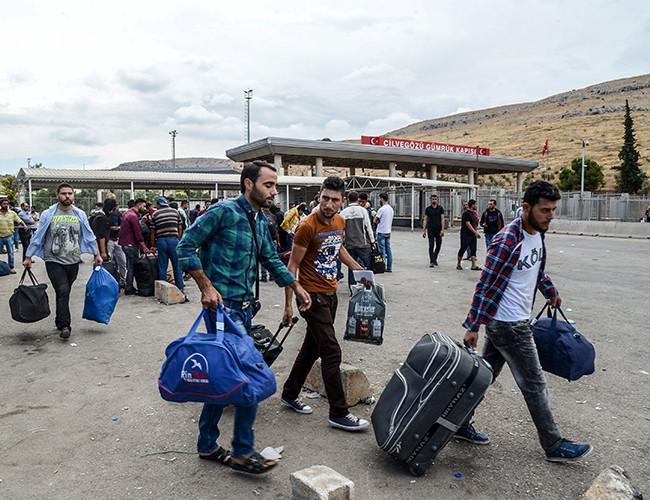
Nearly 75 percent of Syrian migrants in Turkey want Turkish citizenship, according to a study carried out by Ipsos Research Company and the Human Development Foundation (INGEV).
The study also revealed that 52 percent of Syrians would want to continue living in Turkey.
Around 1,300 face-to-face interviews were conducted in 10 Turkish cities hosting 79 percent of Syrian migrants for the study. Researchers spoke to a total of 1,282 Syrians in Istanbul, the southeastern provinces of Şanlıurfa, Mardin and Gaziantep, the southern provinces of Hatay, Adana, Mersin and Kilis, the northwestern province of Bursa and the western province of İzmir.
According to the study, some 650,000 Syrians in Turkey are currently in the workforce, which corresponds to 31 percent of overall refugees. However, a major portion of these workers are unregistered.
As previously announced by the Ministry of Labor and Social Security, the number of Syrians with official working permits is between 10,000 and 15,000.
While 17 percent of the refugees in the workforce are working for a Turkish employer, 5 percent are working for a Syrian employer. Some 15 percent of the Syrians are self-employed and only 1 percent is an employer.
The study also said more than 50 percent of Syrians see their future in Turkey.
Some 52 percent of those interviewed said they agreed with the sentence, “I want my children to continue living in Turkey,” while the same percentage also agreed with the sentence “I see mine and my family’s future in Turkey.”
While 49 percent of Syrians said “I see myself as a part of this country,” half of the Syrian refugees said they were having difficulties in social integration.
In addition, 42 percent of Syrians agreed with the statement, “If I had a chance I would like to move to a European country, while 44 percent said they “absolutely do not want to move.”
CORRECTION: An earlier version of this report mistakenly stated that the study was conducted by the Istanbul Policy Center and INGEV and carried out with support from the United Nations High Commissioner for Refugees (UNHCR).